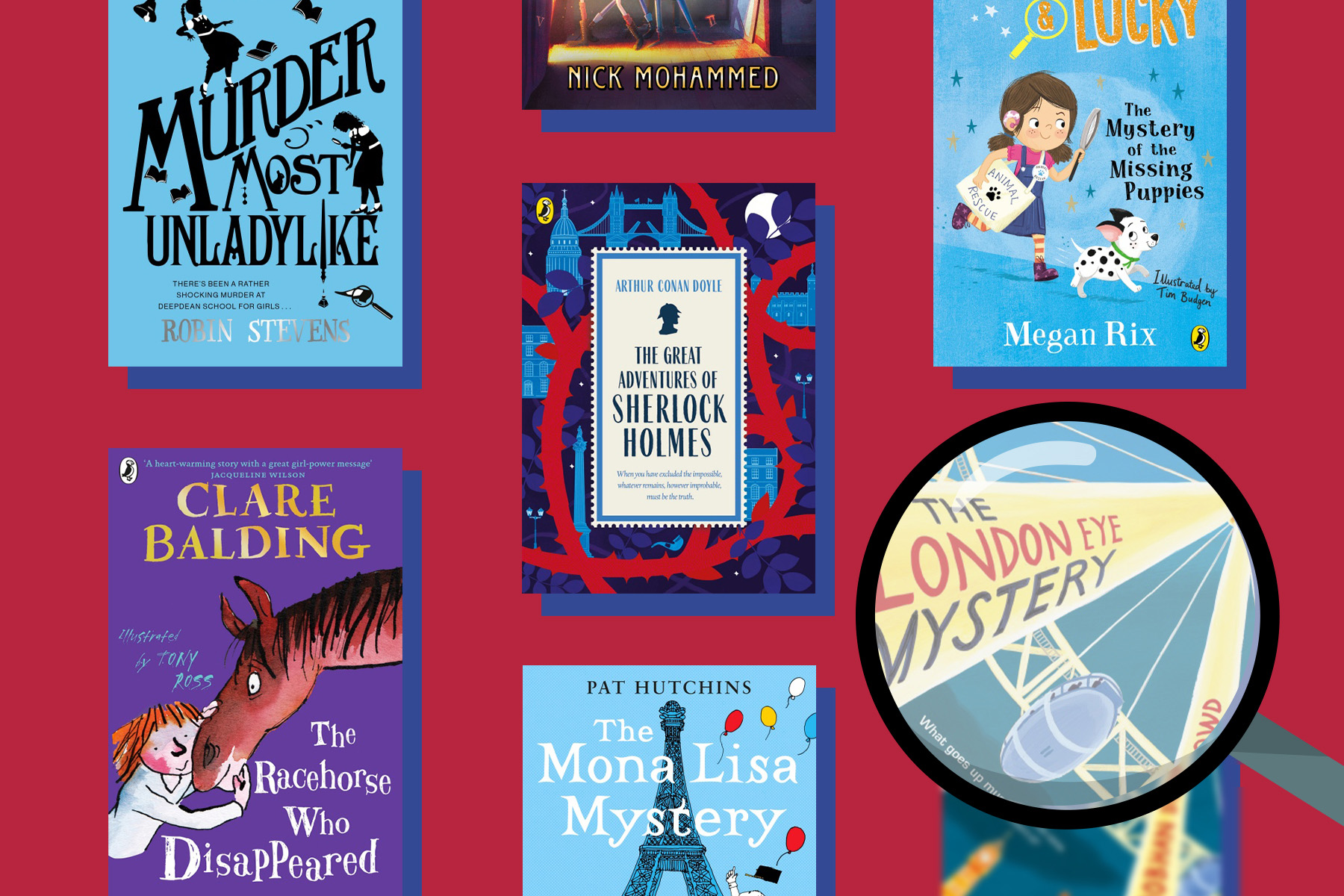9 Best Detective Novels You Can’t Miss: A Blend of Classic and Modern Mysteries
There’s something undeniably captivating about a great detective novel. The thrill of the chase, the intricate puzzles, and the brilliant minds piecing together clues keep you turning pages late into the night. Whether you’re a seasoned mystery lover or new to the genre, diving into a well-crafted detective story offers an escape into a world of suspense and intellect.
History of Detective Novels
Detective novels have captivated readers for centuries with their suspense and intellectual challenges. Here’s a look at their intriguing history.
The Pioneer: Edgar Allan Poe
Edgar Allan Poe’s work influenced early detective literature. His 1841 short story, “The Murders in the Rue Morgue,” introduced the first fictional detective, C. Auguste Dupin. Dupin uses unique analytical skills to solve complex cases, marking the beginning of a new literary genre. Poe’s innovation set the stage for future detective stories, blending suspense with methodical problem-solving.
The Golden Age of Detective Novels
The 1920s and 1930s are known as the Golden Age of Detective Novels. During this time, authors like Agatha Christie and Arthur Conan Doyle flourished. Christie’s Hercule Poirot and Miss Marple became household names, solving intricate puzzles with keen intellect. Doyle’s Sherlock Holmes, famous for his deductive reasoning, remains a timeless character. These authors crafted plots rich in clues and red herrings, engaging readers in a game of wits with the detective.
1. “The Hound of the Baskervilles” by Arthur Conan Doyle
Arthur Conan Doyle’s “The Hound of the Baskervilles” is a staple in detective fiction. This novel brings Sherlock Holmes back to investigate a chilling mystery on the desolate moors of England.
Unveiling Sherlock Holmes
Get introduced to Sherlock Holmes’ brilliant deductive skills. Holmes, with his keen observation and unparalleled analytical mind, deciphers clues that others overlook. The atmospheric setting of the Baskerville estate and its eerie moors intensifies the suspense. While Dr. Watson narrates the story, you get a glimpse into Holmes’ genius, making the unraveling of the mystery even more compelling.
The Impact on Future Detective Fiction
Influence future detective novels by observing how “The Hound of the Baskervilles” sets a precedent with its blend of gothic horror and mystery. This novel not only revived the detective genre but also paved the way for more complex and atmospheric crime stories. Doyle’s work inspired countless authors, contributing to the enduring popularity of detective fiction.
2. “The Maltese Falcon” by Dashiell Hammett
Introducing Sam Spade
Meet Sam Spade, a private eye unlike any other. He’s the protagonist of Hammett’s influential novel, embodying the quintessential hard-boiled detective. Spade is cool, cynical, and operates by his own strict code of ethics. When Miss Wonderly walks into his office with a story and cash, Spade’s drawn into a murder investigation involving treachery and deceit.
Hard-Boiled Fiction: A New Era
Hammett’s novel revolutionized detective fiction in the 1930s. With sharp dialogue, gritty realism, and morally ambiguous characters, “The Maltese Falcon” paved the way for a new genre known as hard-boiled fiction. This novel elevated the crime story, shifting from puzzle-like mysteries to narratives steeped in violence and moral complexity. Spade’s relentless pursuit of the valuable statuette symbolizes the era’s darker, more pressing stories.
3. “Murder on the Orient Express” by Agatha Christie
Agatha Christie’s “Murder on the Orient Express” is a quintessential detective novel. Set aboard a luxurious train, this story features her most famous detective, Hercule Poirot.
The Queen of Mystery: Agatha Christie
Agatha Christie, often called the Queen of Mystery, has written over 60 detective novels. She is best known for her meticulous plotting and surprise endings. Her works continue to captivate readers around the world. In “Murder on the Orient Express,” Christie masterfully weaves a complex narrative that keeps you guessing until the final page.
Poirot and the Art of the “Whodunit”
Hercule Poirot, Christie’s meticulous Belgian detective, excels in the “whodunit” genre. He uses his “little grey cells” to unravel seemingly unsolvable mysteries. In “Murder on the Orient Express,” Poirot faces one of his most challenging cases. With a train full of potential suspects, each with a compelling motive, Poirot’s keen observation and deductive skills are put to the ultimate test. This novel showcases Christie’s skill in creating intricate plots and unforgettable characters.
4. “The Big Sleep” by Raymond Chandler
Raymond Chandler’s “The Big Sleep” is a cornerstone in the detective novel genre. Here’s why it’s a must-read for any crime fiction enthusiast.
Reinventing the Detective: Philip Marlowe
Meet Philip Marlowe, a tough, sardonic private detective who redefined what it means to be a detective. Marlowe isn’t just another investigator; his witty dialogue and moral complexity set him apart. Unlike the polished detectives of earlier novels, Marlowe’s gritty realism and sharp intelligence make him both relatable and compelling. Through Marlowe, Chandler introduces a character who doesn’t just solve crimes but delves into the darker aspects of human nature.
Chandler’s Contribution to Noir Fiction
Appreciate Chandler’s profound impact on the noir fiction genre. His writing style, characterized by poetic descriptions and incisive dialogue, brings Los Angeles to life as a city of corruption and secrets. Chandler’s narrative doesn’t just entertain; it challenges you to think critically about the world and its complexities. “The Big Sleep” showcases Chandler’s ability to blend intricate plots with deep character studies, ensuring his work remains influential and timeless.
5. “Gone Girl” by Gillian Flynn
Gillian Flynn revolutionized modern detective novels with “Gone Girl,” blending psychological thrills with deep character exploration.
Modern Twists in Detective Stories
Flynn uses unreliable narrators. You get twisted plots full of deception and manipulation. The story follows Nick and Amy Dunne. Amy’s sudden disappearance leads to a frenetic investigation. With unexpected plot twists, Flynn keeps you guessing until the end.
Psychological Depth and Complex Characters
Flynn excels at character depth. Nick and Amy are multi-layered with dark secrets. Amy’s “Cool Girl” monologue reveals societal pressures on women. Nick wrestles with his flaws, complicating your sympathies. Flynn’s nuanced characters give you rich, psychological complexity.
6. “The Girl with the Dragon Tattoo” by Stieg Larsson
Blending Mystery with Social Commentary
Larsson’s bestseller isn’t just a gripping mystery; it also tackles social issues head-on. Through the investigation of journalist Mikael Blomkvist, the novel delves into corruption within Sweden’s financial industry. Larsson’s narrative addresses topics like sexual violence, human rights, and media ethics. These layers add depth and urgency, making it more than a conventional whodunit.
Lisbeth Salander: A New Type of Detective
Lisbeth Salander breaks the mold of traditional detectives. With her punk aesthetic, exceptional hacking skills, and a mysterious past, she stands out. Her resilience against systemic abuse and her quest for vengeance resonate deeply. Salander’s unique approach and non-conformist attitude bring a fresh perspective to the genre, appealing to readers who crave complexity and innovation.
7. “In the Woods” by Tana French
The Power of Atmosphere in Detective Fiction
Discover how “In the Woods” excels in creating an immersive atmosphere that draws readers in. French’s meticulous descriptions of the eerie Irish woods set a chilling tone from the very beginning. You can almost feel the damp earth and hear the rustling leaves, which enhances the sense of dread looming over the narrative. This atmospheric depth not only grips you but also amplifies the mystery’s psychological impact.
French’s Innovative Approach to Plot and Character
Explore Tana French’s groundbreaking approach to plot and character development. Rob Ryan, the troubled detective, is compellingly flawed, adding layers of complexity to the story. French intertwines his unresolved childhood trauma with the current investigation, blurring the lines between past and present. Her multifaceted characters and nonlinear storytelling keep you engaged, providing an experience that’s both emotionally and intellectually stimulating.
8. “Devil in a Blue Dress” by Walter Mosley
Walter Mosley’s “Devil in a Blue Dress” introduces you to a gripping mystery set in post-war Los Angeles with a unique African-American detective, Easy Rawlins.
Easy Rawlins: An African-American Detective
Meet Easy Rawlins, an African-American veteran navigating the complexities of 1948 Los Angeles. Rawlins’ character is refreshing in the detective genre, offering insights into the struggles and resilience of marginalized communities. Through his perspective, you experience a deep, personal connection to the socio-political landscape, making the narrative both thrilling and thought-provoking. Unlike many traditional detectives, Rawlins is not a professional sleuth but a man thrust into investigation out of necessity, adding a layer of realism and vulnerability to the character.
Exploring Post-War Los Angeles
Journey through post-war Los Angeles, a city rife with racial tension and burgeoning opportunities. Mosley masterfully depicts the era’s socio-economic dynamics, creating an authentic backdrop for Rawlins’ investigation. As you delve into the novel, you’ll traverse diverse neighborhoods, from bustling jazz clubs to seedy underworlds, capturing the vibrant yet gritty essence of 1948 LA. This setting amplifies the novel’s atmosphere, immersing you in the stark contrasts and hidden dangers of a city in transition, enriching the detective story with historical and cultural depth.
9. “Caves of Steel” by Isaac Asimov
Science Fiction Meets Detective Novel
“Caves of Steel” combines science fiction and detective elements seamlessly. Set in a future Earth where humans live in enormous, enclosed cities, this novel showcases a unique world-building aspect. Elijah Baley, a gritty, earthbound detective, teams up with R. Daneel Olivaw, a humanoid robot, to solve a complex murder case. The narrative exhibits Asimov’s classic style, blending futuristic settings with traditional mystery tropes.
Robotics and Its Implications in Crime Solving
Robotics play a pivotal role in the storyline. Asimov explores the Three Laws of Robotics through Olivaw, adding a philosophical layer to the investigation. The relationship between Baley and Olivaw highlights human-robot interaction, testing Baley’s biases and professional skills. This dynamic partnership not only advances the plot but also delves into themes of trust, prejudice, and coexistence.
Conclusion: The Enduring Legacy of Detective Novels
Detective novels have a timeless appeal that transcends genres and eras. From Walter Mosley’s vivid portrayal of post-war Los Angeles to Isaac Asimov’s futuristic blend of mystery and science fiction these stories captivate readers with their intricate plots and rich character development.
Each novel on the list offers a unique perspective on the detective genre making it a treasure trove for mystery enthusiasts. Whether you’re drawn to classic whodunits or innovative genre crossovers these books promise to keep you on the edge of your seat.
Dive into these captivating tales and experience the thrill of unraveling mysteries alongside unforgettable detectives.






